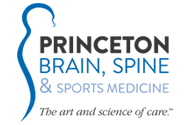Acoustic Neuroma
Acoustic Neuroma (Vestibular Schwannoma)
Causes, Diagnosis & Treatment
An acoustic neuroma is a non-cancerous, slow-growing tumor that grows at a rate of approximately one to 10mm per year. Acoustic neuromas arise from the eighth cranial nerve, which is associated with balance and hearing. Since these tumors originate from the “Schwann cells” wrapping around the nerve, an acoustic neuroma is more accurately classified as vestibular schwannoma.
Acoustic neuromas are found in part of the brain called the cerebellopontine angle (CPA), which lies close to the brainstem. The brainstem regulates vital systems like breathing, heart rate and blood pressure.
Incidence & Symptoms of Acoustic Neuroma
Acoustic neuromas account for six to eight percent of all intracranial tumors. One in every 100,000 people is affected, and females are twice as likely to be affected. Ninety-five percent of the time, the tumor occurs on only one side (right or left). In rare cases, when the tumor is associated with a genetic disorder called neurofibromatosis (NF) type 2, the neuroma occurs on both sides.
When discovered, an acoustic neuroma is usually greater than two centimeters in diameter. The three most common symptoms are:
- Hearing loss. Slow and gradual, with reported difficulty hearing high-frequency sounds and telephone conversations. About 10 percent of patients have sudden hearing loss, which researchers believe is due to nerve infarction or obstruction of an artery supplying the inner ear.
- Ringing in the ears. Usually high-pitched.
- May include loss of balance and dizziness.
Additional symptoms may occur if the neuroma presses on nearby nerves, including facial numbness or weakness, ear pain and taste changes. When tumors are larger than two centimeters, they may put pressure on the brainstem—leading to headache, nausea and vomiting, double vision, and in rare cases, coma or death.
Acoustic Neuroma Diagnosis
An MRI is the best imaging study for acoustic neuroma. The MRI will reveal the tumor’s size and location, which is critical information for the neurosurgeon. All patients should also have a formal hearing test. Your surgeon may also recommend the following tests to differentiate neuroma from other causes of vertigo and dizziness:
- Head CT
- Caloric stimulation (test for vertigo)
- Electronystagmography (test of equilibrium & balance)
Treatment for Acoustic Neuroma
Considering the patient’s age, medical condition and hearing quality as well as the tumor’s size and location, the neurosurgeon will recommend one of three treatment options: observation, radiosurgery or traditional surgery.
Risks & Recovery
The most common surgical complication is a cerebrospinal fluid leak. If this occurs, the neurosurgeon will treat the problem accordingly. Other surgical risks include injury to other nerves, like the facial nerve that controls face muscles. Typically, one in five patients will have noticeable facial weakness.
Brain surgery results in complete removal of an acoustic neuroma in over 95 percent of cases. In patients with relatively small tumors, about 95 percent will have no permanent facial paralysis following surgery. However, roughly two-thirds of patients with large tumors will have some permanent facial weakness after surgery.
Hearing preservation depends, in part, on the size of the neuroma when it is discovered. If a tumor is removed when it is small, about half of patients retain useful hearing in the affected ear. Hearing lost before surgery will not be regained, and larger tumors often result in total hearing loss on the affected side. Your neurosurgeon will discuss probable outcomes and recovery processes in-depth during your pre- and post-operative visits.
Contact Our NJ & PA Brain Treatment Experts
As one of America’s leading neurosurgical practices, Princeton Brain, Spine & Sports Medicine partners with top-rated hospitals to provide exceptional treatment for local and out-of-area clients. Delivering state-of-the-art acoustic neuroma treatment at our conveniently located New Jersey and Pennsylvania campuses, our award-winning brain specialists embrace a patient-first approach that puts you in the driver’s seat. Our practice is on the cutting-edge of brain research, and we partner with radiologists and hearing specialists to support and advocate for you from diagnosis through treatment and follow-up. To learn more about our team or schedule an appointment, contact us today [LINK TO: Contact].
Reference:
Long-Term Outcomes After Radiosurgery for Acoustic Neuromas
Douglas Kondziolka, M.D., L. Dade Lunsford, M.D., Mark R. McLaughlin, M.D., and John C. Flickinger, M.D. | N Engl J Med 1998; 339:1426-1433 | November 12, 1998 DOI: 10.1056/NEJM199811123392003
Request an Appointment
Submit an appointment request on our patient portal or contact our New Jersey and Pennsylvania campuses to speak with a patient advocate.
